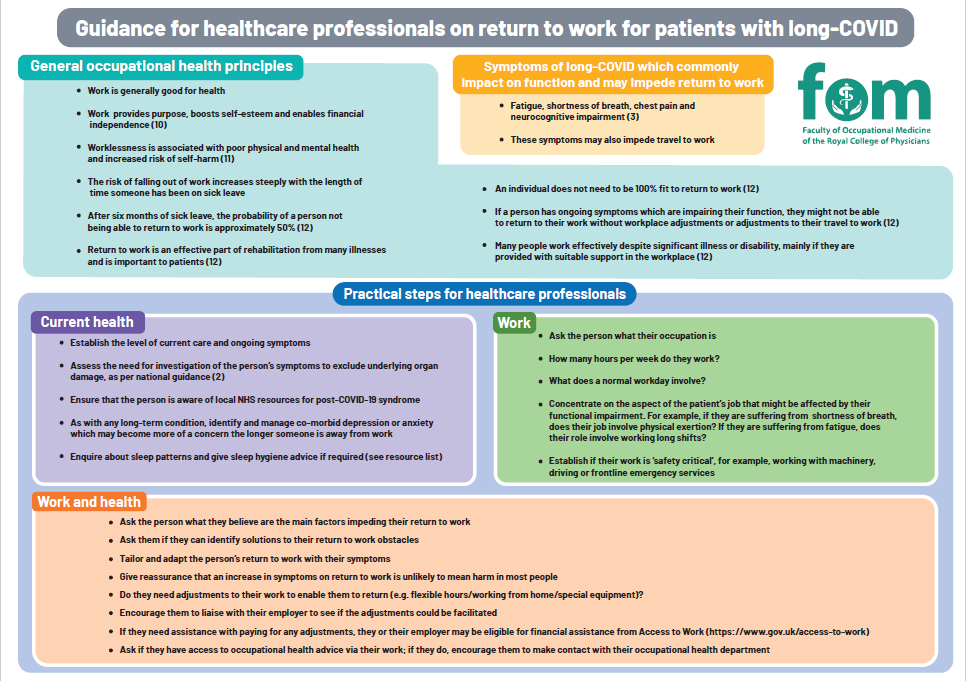Suffolkres
Senior Member (Voting Rights)
Moved from this thread
____________
https://www.fom.ac.uk/media-events/publications/fom-guidance Just found but I haven't read it yet. However, Dr Ira Madan has 'FORM' not 'FOM' on ME claiming to be a bit of an authority...(2006 precursor NHS Health & Work Guidance on ME to PACE and NICE 2007!).....
Guidance for healthcare professionals on return to work for patients with long-COVID

On behalf of the FOM, a multidisciplinary group under the leadership of FOM Academic Dean, Dr Ira Madan, developed guidance aimed at all healthcare professionals to assist them in facilitating the return to work of people who are unable to work due to long-COVID. This guidance was developed alongside the NICE/RCGP/SIGN.
Access the guidance here (for the full-sized file, for best use for printing the guidance) or here (for the smaller sized version, designed for sharing digitally).
Guidance for managers and employers on return to work for employees with long-COVID
This guidance is aimed at managers and employers to assist them in facilitating the return to work of employees who may find this difficult because of long-COVID. Access this guidance here (for the full-sized file, for best use for printing the guidance) or here (for the smaller sized version, designed for sharing digitally).
____________
https://www.fom.ac.uk/media-events/publications/fom-guidance Just found but I haven't read it yet. However, Dr Ira Madan has 'FORM' not 'FOM' on ME claiming to be a bit of an authority...(2006 precursor NHS Health & Work Guidance on ME to PACE and NICE 2007!).....
Guidance for healthcare professionals on return to work for patients with long-COVID

On behalf of the FOM, a multidisciplinary group under the leadership of FOM Academic Dean, Dr Ira Madan, developed guidance aimed at all healthcare professionals to assist them in facilitating the return to work of people who are unable to work due to long-COVID. This guidance was developed alongside the NICE/RCGP/SIGN.
Access the guidance here (for the full-sized file, for best use for printing the guidance) or here (for the smaller sized version, designed for sharing digitally).
Guidance for managers and employers on return to work for employees with long-COVID
This guidance is aimed at managers and employers to assist them in facilitating the return to work of employees who may find this difficult because of long-COVID. Access this guidance here (for the full-sized file, for best use for printing the guidance) or here (for the smaller sized version, designed for sharing digitally).
Last edited by a moderator:


